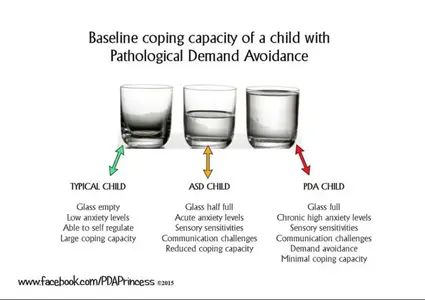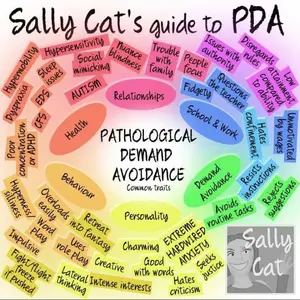Azeth
☆Calm in the Chaotic Mindscape♡
I have been read up on it some and I am realizing that my persistent issues with certain aspects of life, could be related to PDA.
Just thinking back to school. To things how I was treated by my parental units. How I have handled, and still handle curveballs in life. Basic daily tasks. It all is chaos for me.
It seems like the there are alot of things I do the bare minimum for. Yet somethings I can go for hours, if I wanted to, figuring out more about them.
Though it then makes me wonder if my tramas made it worse. That I simply will not do things, because it reminds me of how my parents responded. Thus inducing immediate anxiety.
Just thinking back to school. To things how I was treated by my parental units. How I have handled, and still handle curveballs in life. Basic daily tasks. It all is chaos for me.
It seems like the there are alot of things I do the bare minimum for. Yet somethings I can go for hours, if I wanted to, figuring out more about them.
Though it then makes me wonder if my tramas made it worse. That I simply will not do things, because it reminds me of how my parents responded. Thus inducing immediate anxiety.

